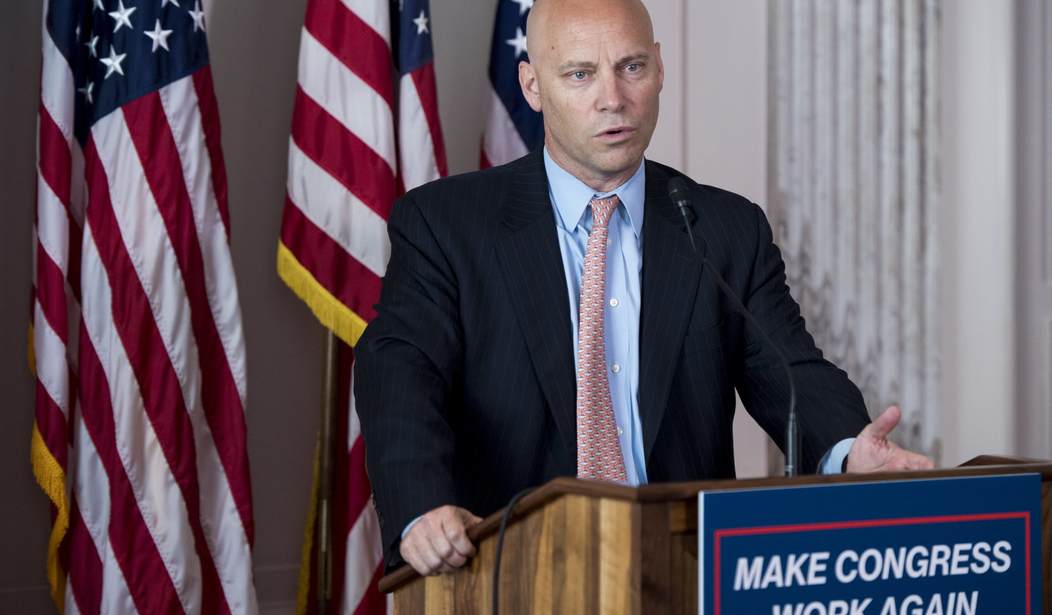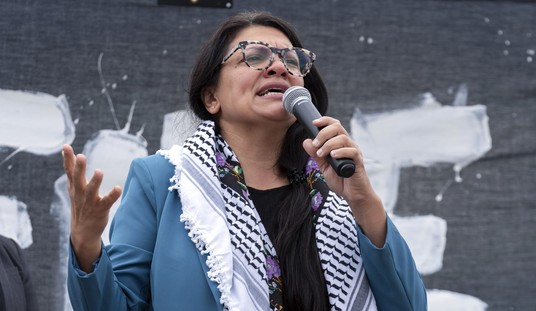WASHINGTON – The White House is readying an effort to make the lower individual tax rates permanent before midterm elections in November, according to White House Director of Legislative Affairs Marc Short.
“It will be our push. I think it’s more likely that we’ll get a vote in the House but it will set up, I think, people will understand in November, this is one side that’s trying to make the individual rates permanent and that relief and those who vote against it, I think, will set them up for voters to understand what their interest is, which is, I think, often taking more taxpayer money and growing the government,” Short told PJM at the Faith and Freedom Coalition’s Road to Majority conference on Friday.
During the interview, Short laid out the administration’s top priorities before the year’s end.
“There are several things that we still have to get done. One is an appropriations process. It’s been 22 years since Congress completed appropriations bills by Sept. 30, and the consequence when they don’t is these giant omnibus bills that you’ve heard the president give his displeasure with are dumped on his desk and say ‘either you sign this or you shut down the government.’”
Short said other agenda items for the administration include nominations and phase two of tax reform.
“At this point, there have been more filibusters of our nominees by Democrats than any administration in history by a wide margin. In fact, the last six presidents in their entire first two years of the presidency totaled 24 filibusters. That’s 12 years of the presidency 24 filibusters. We’ve had 101 filibusters of our nominees in the first 15 months. So now there’s 275 nominees sitting in the United States Senate,” he said.
“We need to get those guys confirmed. And three is you’ll see the White House lay out a new tax plan that focuses more on making the individual rate tax relief permanent. As you know, in the last bill the corporate relief was permanent but the individual rate phases out. We want to make sure people are protected and give that rate to them permanently,” he added.
Short said the White House’s “priorities” on immigration reform and Deferred Action for Childhood Arrivals remain the same but the administration is no longer supporting citizenship for 1.8 million DREAMers, which was outlined under their original plan earlier this year.
“Our priorities remain the same as they were six months ago when we had this debate, which is we want to secure the border. We’ve asked for $25 billion, about 18 of that’s for the wall, an additional $7 billion that helps to increase personnel and judges to help move deportation cases. We want reforms as well. These silly laws that if there’s somebody that’s other than Mexican they’re released or if people come across the border with children – a lot of that debate going on now about the separation of parents and child. Those are laws that have been on the books that basically tie the administration’s hands,” he said.
“We need that cleaned up in exchange for that. The president said ‘I will take care of this DACA population and I will support legislation that legalizes them.’ That, I think, is a common-sense deal. The challenge we face is that Democrats believe they’re winning in the courts right now on DACA so they’re not anxious to come to the table and actually negotiate until the upper courts actually overturn those cases. At that point, the Democrats will come along and negotiate again,” he added.
PJM pointed out that some moderate Republican lawmakers want the DREAM Act passed with only some border security measures tied to it. Short was asked if Trump would sign that type of bill if it passes along with Democratic support.
“It’s not so much what has Democrat votes. It’s a question of what is the population DREAMers? Is it limited to the DACA population or is it vastly extensive? People who broke the law coming into our country, No.1, and No. 2, does it really provide funding for our border? In many cases, these DREAMer bills authorize dollars, which is a clever way to do this in D.C. but actually doesn’t appropriate it. So Congress can say ‘I authorized it,’ but it’s actually appropriating the dollars that makes a difference. And so we’re not going to play that game. If they’re not going to give us the resources we need and if they’re expanding that population well beyond the DACA population, the president’s not going to sign them,” Short said.
In January, Trump proposed a path to citizenship for 1.8 million undocumented immigrants who were brought to the U.S. illegally as children, which included up to 800,000 recipients of President Obama’s DACA program. The plan also included federal funding for additional barriers or “walls” along the southwest border, limits on family reunification or “chain migration” and the elimination of the visa lottery.
Short said the White House is no longer interested in supporting a bill that covers undocumented immigrants outside of the population of original DACA recipients.
“Those are the number of people who are actually applied and gotten permits on DACA. Some Democrats said, ‘well, what about those who are afraid to come out of the shadows who could have,’ and that’s not where we wanted to go,” he said. “But to get the things we wanted we were willing to go a little bit further. I don’t think we’re at 1.8 [million]. There are some people who are putting other plans out there. We’ve acquiesced above the 690 [thousand] but it’s not as high as 1.8 [million].”
PJM asked Short if signing a bill that offers legal status or a path to citizenship to DACA recipients before the midterm elections could hurt Republicans at the ballot box.
“Well, quite the contrary. I think if it’s actually making sure we’re finally securing our border and making reforms that are permanent in our immigration system, I think it’s helpful to us. If instead what you’re saying is a simple bill that just provides amnesty for the DACA population and doesn’t do the other things then, yes, absolutely that would be detrimental,” Short replied. “But if we’re doing things that secure our border and making real long-term reforms then, no, I think that is a plus for us.”
When asked if he thinks Trump’s base would support legalization for DACA recipients tied to some border security measures, Short said, “We want full border security. It’s not just for the full funding of the wall. It’s also for permanent reforms for our immigration system. So yes, those are in our minds critically important.”









Join the conversation as a VIP Member